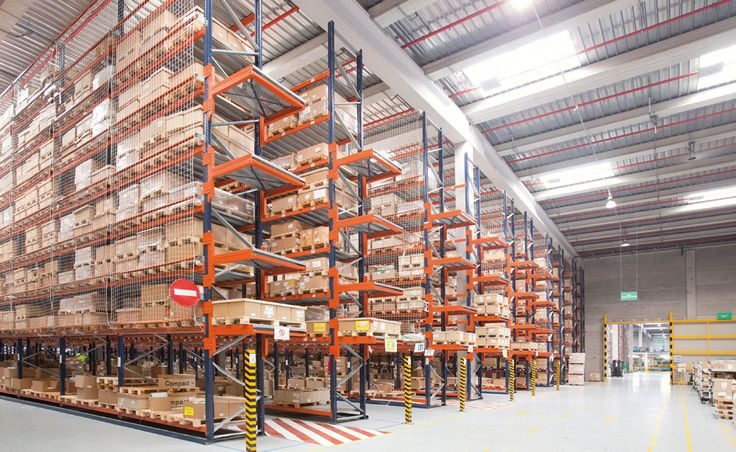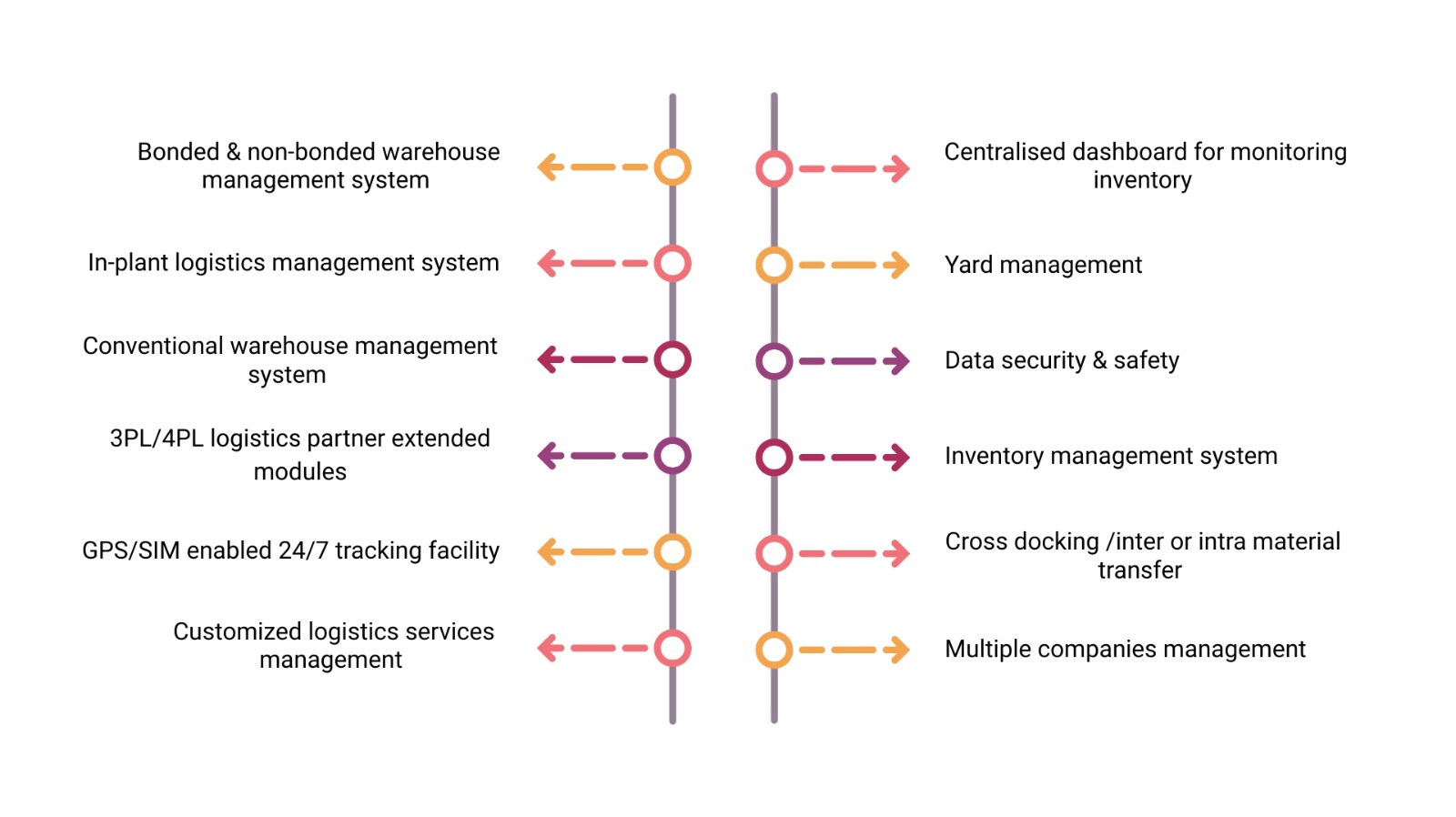As a trusted name among warehousing companies in India, Impact Logistics Solutions’ Warehouse Management System (WMS) helps businesses efficiently control and administer warehouse operations from the time goods or materials enter until they move out. Operations in a warehouse include inventory management, picking processes, and auditing.
WMS provides visibility into an organization's inventory at any time and location, whether in a facility or distributor. It can also manage supply chain operations from the manufacturer or wholesaler to the warehouse, then to a retailer or distributor.
Impact Logistics Solutions’ WMS is often used alongside or integrated with a Transportation Management System (TMS) and Inventory Management System to deliver end-to-end control and visibility across the supply chain.
WMS Benefits
Although a WMS is complex and expensive to implement and run, customer gain benefits that can justify the complexity and costs. Implementing a WMS can help an organization reduce labour costs, improve inventory accuracy, improve flexibility and responsiveness, decrease errors in picking and shipping goods, and improve customer service.
The customer can handle the most up-to-date information because our WMS operates with real-time data.
Compatibility
WMS has extension module to link with other well known ERPs popular in the industry. Linkages available from both sides to automate task that requires huge manual efforts as well as reconcilliation.
Expertise
As a reputed warehousing company, Ash Logistics has an experienced and skilled workforce capable of handling leading ERPs in the supply chain, including SAP, SAP WMS, Oracle, Baan, JD Edwards, and Tally
Transparency
Integrating Blockchain with WMS ensures real-time, tamper-proof records of inventory and transactions. This builds trust among stakeholders and reduces disputes in the supply chain.
Efficiency
WMS powered with smart contracts on Blockchain can automate repetitive logistics processes, such as verification, approval, and invoicing, significantly reducing operational time and cost.
Traceability
Blockchain-enabled WMS provides end-to-end traceability of goods — from origin to delivery — ensuring better product authenticity, quality control, and regulatory compliance.


